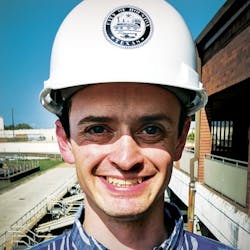Storm & Sewer Season
Bob Crossen is managing editor for W&WD and iWWD. Crossen can be reached at [email protected].
Earlier this summer, I discovered and joined a handful of water and wastewater treatment operator groups on Facebook. I initially was skeptical that joining these groups would have much of an impact on my work, but I have found them to be great resources. They teach me about problems operators deal with regularly, provide updates on news in the industry from around the country and, of course, make me laugh because of all the funny pictures and jokes that are posted regularly. I love how seriously this industry takes its work while also finding the time to have good laugh and poke some fun.
When it comes to the news updates in these groups, I have recognized a recent trend in postings. Within the past months there have been several spills of partially treated or untreated sewage into local waterways.
In Northampton, Mass., a treatment plant released discharge into the Connecticut River after severe weather led to a power failure at the Northampton Wastewater Treatment Plant in early August. In late July, the Baltimore sewer system was inundated with record rainfall levels causing approximately 45 million gal of sewage and storm water to flow into the city’s streams and harbors. Around that same time—and due to the same storm—approximately 1 million gal of partially treated sewage spilled into the Casco Bay in Portland, Maine. And in the middle of August, the Binghamton, N.Y., wastewater treatment plant discharged almost 35 million gal of untreated wastewater and storm water runoff into the Susquehanna River.
While I have noticed an increased frequency of these kinds of news items, I am hesitant to consider this a full blown trend. All the issues occurred in and around New England within the past month, during a period when the area was hit with several severe storms.
Living in Chicago, I have experienced some recent storms that have been particularly severe, but have heard little news about sewage overflows or spills into waterways. This begged the question: What is different about the situations in New England compared to the issues local to me?
If you have any insight you would like to share with me, please do get in touch. My fellow editors at Storm Water Solutions and Water Quality Products and I discussed this topic in the most recent episode of our podcast, Talking Under Water, and we would like to hear from you. Send an email to [email protected] or contact me directly with the information below to offer your experiences and insight.
